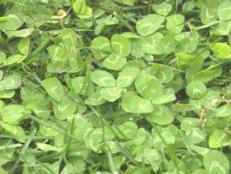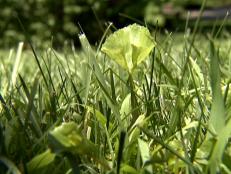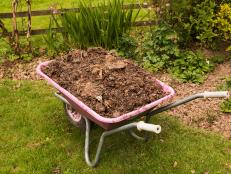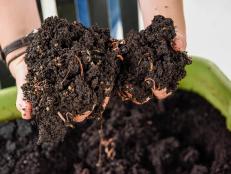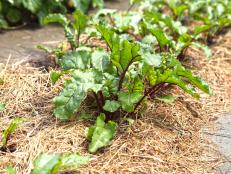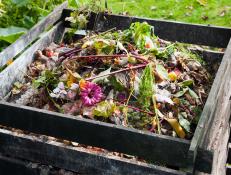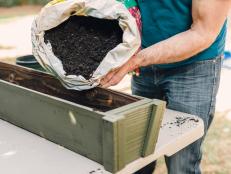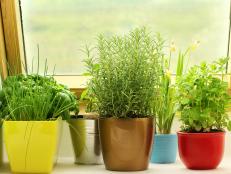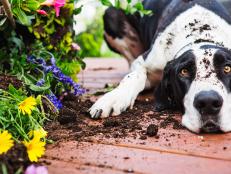Organic Gardening Demystified
Compost tea, insecticidal soap and flamers help you go "green" in the yard.

Going organic in your garden doesn't have to be a difficult process – if you know where to start. Follow these steps to help you get started on the "green" path to organic gardening.
Getting Started From the Soil Up
So where does a gardener begin the process of going organic? Where the plants do: the soil. "The place you want to start is the soil because everything comes from the soil," says Phil Radspinner, vice president of a northern California farm-and-garden supply store. "In fact, there is a saying in organic farming and gardening – feed the soil, not the plant."
Soil-test kits give you a general idea of the nitrogen, phosphorous and potassium levels in your soil so you can customize your fertilizer and amendments to fit the plants' needs. For more specific information, send a soil sample to a qualified lab. "From a lab test, you're going to get an accurate reading of what your nutrient levels are so that you can make the proper adjustments to have the optimum soil."
Taking a soil sample is easy. Remove the top layer of grass or weeds and take a scoop of the soil a few inches underneath that. Repeat that in eight to 12 places throughout the yard, placing all the soil into one container. If there's a spot in the yard where nothing seems to grow, place that sample in a separate container.
Then smash the clumps and mix it all up to get a nice homogonous representation of your soil. "Once the soil sample bag is ready, I avoid touching the soil with my hands. If I've eaten something with salt on it, that could throw off the test and indicate salt in the soil when there isn't any."
Call your nearest cooperative extension office for information on where to send the soil sample and send it out. The results will tell you which organic fertilizers and amendments are necessary to add to improve the soil. Those nutrients then invigorate hard-working soil organisms called microbes.
Reduce the Use of Synthetic Fertilizers
"A lot of [organic] fertilizers can be processed through the soil's buffering ability, the natural microbial process in the soil," Phil says. "Conventional fertilizers typically go directly to the plant, and then there can be a side effect on the microbes and the soil chemistry that can become detrimental in the long run."
Organic Pest Control

There are several ways to deal with pests organically and without the use of conventional pesticides. Organic pest control methods typically are milder than conventional pesticides and, as a result, cause less shock to the plants' systems. One such product, insecticidal soap, is very mild, much like the soap you use in the kitchen or bathroom. An "OMRI" on the label indicates its review by the Organic Materials Review Institute.
Brew Your Own Compost Tea
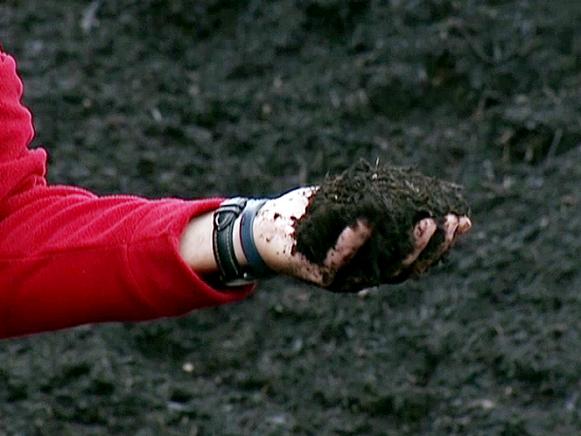
One of the best ways to naturally boost your soil chemistry is with compost. Adding compost to your soil improves its tilth, drainage and microbial activity. Making your own compost pile is an easy and cheap way to recycle yard and kitchen waste. As an alternative to the time and effort involved in making your own compost, you can also purchase it at most garden supply stores.
Compost can be made into a soupy soil salve called compost tea. "Compost tea is a great addition to your garden fertilizer management program. It has beneficial nutrients and microbes, and it can be applied as a foliar spray or directly to the soil. People have seen phenomenal results from compost tea, both large and small growers alike."
You can make your own in a compost tea brewer. For best results, use the tea within a day of brewing. Many garden supply stores also sell freshly brewed one-gallon containers.
Organic Weed Control
Weeds can be a problem in the organic garden. There are methods, such as hand weeding and digging out weeds with tools, that work, but consider burning the weeds out, if local conditions permit. A propane flamer works by rupturing the plant's cell walls, eventually killing it. It doesn't disturb the soil surface so there's less erosion. Plus, buried weed seeds aren't exposed which would start the whole cycle over again. Warning: Exercise caution when using this tool, and never use when risk of wildfire is present.






